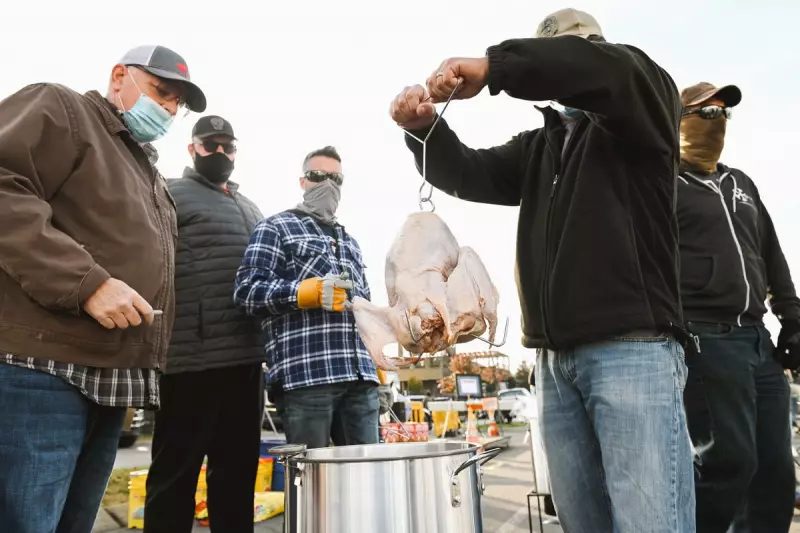
The Hidden Danger in Your Thanksgiving Feast
Deep-frying a turkey promises a deliciously moist centrepiece for your Thanksgiving dinner, but this popular cooking method carries a significant risk. Every autumn, attempts to deep-fry turkeys result in millions of pounds in damages, emergency room visits, and even tragic fatalities. The primary cause of these accidents is a simple, yet catastrophic, mistake: placing a frozen or partially frozen turkey into boiling oil. For a safe celebration, it is absolutely vital to thoroughly thaw and dry your turkey before it touches the hot oil. Neglecting this step can lead to an explosive disaster.
The Chemistry Behind the Explosion
So, what makes a frozen turkey so volatile in a deep-fryer? The answer lies in fundamental chemistry, specifically the concept of density. Density refers to how much mass an object has in a given volume. The dangerous interaction begins with the fact that water is denser than oil. Water molecules are small and pack tightly together, whereas oil molecules are larger and less compact. Furthermore, water contains heavier oxygen atoms, making a cup of water heavier than a cup of oil, which is why oil floats.
This is critically important because raw meat is composed of 56% to 73% water. A frozen turkey is essentially a block of ice and tissue. When cooking oil is heated to around 175°C (350°F) for deep-frying, it becomes far hotter than water's boiling point of 100°C (212°F).
When a frozen turkey is submerged, the ice inside melts into liquid water. Being denser than the oil, this water sinks to the bottom of the pot. There, it continues to absorb immense heat, causing it to rapidly transform into steam. This phase change is where the danger erupts. Steam occupies 1,700 times the volume of liquid water. This violent expansion causes a massive and instantaneous drop in density, forcing the steam to surge upwards. The result is an explosion that blasts boiling oil out of the pot. If this oil contacts the burner's flame, it can ignite, creating a fast-moving and devastating fire.
Ensuring a Safe and Delicious Thanksgiving
Thousands of these preventable accidents occur each year. The key to safety is straightforward preparation. Before you even think about heating the oil, ensure your turkey is completely thawed. Then, meticulously pat it dry inside and out to remove any surface moisture. Understanding the simple science of density and phase changes can be the difference between a memorable meal and a catastrophic holiday incident. This Thanksgiving, prioritise safety to fully enjoy the rewards of a perfectly cooked, deep-fried turkey.





